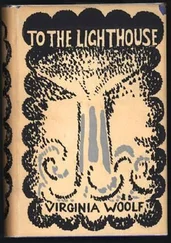Table of Contents
Hewet and Rachel had long ago reached the particular place on the edge of the cliff where, looking down into the sea, you might chance on jelly-fish and dolphins. Looking the other way, the vast expanse of land gave them a sensation which is given by no view, however extended, in England; the villages and the hills there having names, and the farthest horizon of hills as often as not dipping and showing a line of mist which is the sea; here the view was one of infinite sun-dried earth, earth pointed in pinnacles, heaped in vast barriers, earth widening and spreading away and away like the immense floor of the sea, earth chequered by day and by night, and partitioned into different lands, where famous cities were founded, and the races of men changed from dark savages to white civilised men, and back to dark savages again. Perhaps their English blood made this prospect uncomfortably impersonal and hostile to them, for having once turned their faces that way they next turned them to the sea, and for the rest of the time sat looking at the sea. The sea, though it was a thin and sparkling water here, which seemed incapable of surge or anger, eventually narrowed itself, clouded its pure tint with grey, and swirled through narrow channels and dashed in a shiver of broken waters against massive granite rocks. It was this sea that flowed up to the mouth of the Thames; and the Thames washed the roots of the city of London.
Hewet’s thoughts had followed some such course as this, for the first thing he said as they stood on the edge of the cliff was—
“I’d like to be in England!”
Rachel lay down on her elbow, and parted the tall grasses which grew on the edge, so that she might have a clear view. The water was very calm; rocking up and down at the base of the cliff, and so clear that one could see the red of the stones at the bottom of it. So it had been at the birth of the world, and so it had remained ever since. Probably no human being had ever broken that water with boat or with body. Obeying some impulse, she determined to mar that eternity of peace, and threw the largest pebble she could find. It struck the water, and the ripples spread out and out. Hewet looked down too.
“It’s wonderful,” he said, as they widened and ceased. The freshness and the newness seemed to him wonderful. He threw a pebble next. There was scarcely any sound.
“But England,” Rachel murmured in the absorbed tone of one whose eyes are concentrated upon some sight. “What d’you want with England?”
“My friends chiefly,” he said, “and all the things one does.”
He could look at Rachel without her noticing it. She was still absorbed in the water and the exquisitely pleasant sensations which a little depth of the sea washing over rocks suggests. He noticed that she was wearing a dress of deep blue colour, made of a soft thin cotton stuff, which clung to the shape of her body. It was a body with the angles and hollows of a young woman’s body not yet developed, but in no way distorted, and thus interesting and even lovable. Raising his eyes Hewet observed her head; she had taken her hat off, and the face rested on her hand. As she looked down into the sea, her lips were slightly parted. The expression was one of childlike intentness, as if she were watching for a fish to swim past over the clear red rocks. Nevertheless her twenty-four years of life had given her a look of reserve. Her hand, which lay on the ground, the fingers curling slightly in, was well shaped and competent; the square-tipped and nervous fingers were the fingers of a musician. With something like anguish Hewet realised that, far from being unattractive, her body was very attractive to him. She looked up suddenly. Her eyes were full of eagerness and interest.
“You write novels?” she asked.
For the moment he could not think what he was saying. He was overcome with the desire to hold her in his arms.
“Oh yes,” he said. “That is, I want to write them.”
She would not take her large grey eyes off his face.
“Novels,” she repeated. “Why do you write novels? You ought to write music. Music, you see”—she shifted her eyes, and became less desirable as her brain began to work, inflicting a certain change upon her face—“music goes straight for things. It says all there is to say at once. With writing it seems to me there’s so much”—she paused for an expression, and rubbed her fingers in the earth—“scratching on the matchbox. Most of the time when I was reading Gibbon this afternoon I was horribly, oh infernally, damnably bored!” She gave a shake of laughter, looking at Hewet, who laughed too.
“ I shan’t lend you books,” he remarked.
“Why is it,” Rachel continued, “that I can laugh at Mr. Hirst to you, but not to his face? At tea I was completely overwhelmed, not by his ugliness—by his mind.” She enclosed a circle in the air with her hands. She realised with a great sense of comfort who easily she could talk to Hewet, those thorns or ragged corners which tear the surface of some relationships being smoothed away.
“So I observed,” said Hewet. “That’s a thing that never ceases to amaze me.” He had recovered his composure to such an extent that he could light and smoke a cigarette, and feeling her ease, became happy and easy himself.
“The respect that women, even well-educated, very able women, have for men,” he went on. “I believe we must have the sort of power over you that we’re said to have over horses. They see us three times as big as we are or they’d never obey us. For that very reason, I’m inclined to doubt that you’ll ever do anything even when you have the vote.” He looked at her reflectively. She appeared very smooth and sensitive and young. “It’ll take at least six generations before you’re sufficiently thick-skinned to go into law courts and business offices. Consider what a bully the ordinary man is,” he continued, “the ordinary hard-working, rather ambitious solicitor or man of business with a family to bring up and a certain position to maintain. And then, of course, the daughters have to give way to the sons; the sons have to be educated; they have to bully and shove for their wives and families, and so it all comes over again. And meanwhile there are the women in the background…. Do you really think that the vote will do you any good?”
“The vote?” Rachel repeated. She had to visualise it as a little bit of paper which she dropped into a box before she understood his question, and looking at each other they smiled at something absurd in the question.
“Not to me,” she said. “But I play the piano…. Are men really like that?” she asked, returning to the question that interested her. “I’m not afraid of you.” She looked at him easily.
“Oh, I’m different,” Hewet replied. “I’ve got between six and seven hundred a year of my own. And then no one takes a novelist seriously, thank heavens. There’s no doubt it helps to make up for the drudgery of a profession if a man’s taken very, very seriously by every one—if he gets appointments, and has offices and a title, and lots of letters after his name, and bits of ribbon and degrees. I don’t grudge it ’em, though sometimes it comes over me—what an amazing concoction! What a miracle the masculine conception of life is—judges, civil servants, army, navy, Houses of Parliament, lord mayors—what a world we’ve made of it! Look at Hirst now. I assure you,” he said, “not a day’s passed since we came here without a discussion as to whether he’s to stay on at Cambridge or to go to the Bar. It’s his career—his sacred career. And if I’ve heard it twenty times, I’m sure his mother and sister have heard it five hundred times. Can’t you imagine the family conclaves, and the sister told to run out and feed the rabbits because St. John must have the school-room to himself—‘St. John’s working,’ ‘St. John wants his tea brought to him.’ Don’t you know the kind of thing? No wonder that St. John thinks it a matter of considerable importance. It is too. He has to earn his living. But St. John’s sister—” Hewet puffed in silence. “No one takes her seriously, poor dear. She feeds the rabbits.”
Читать дальше












